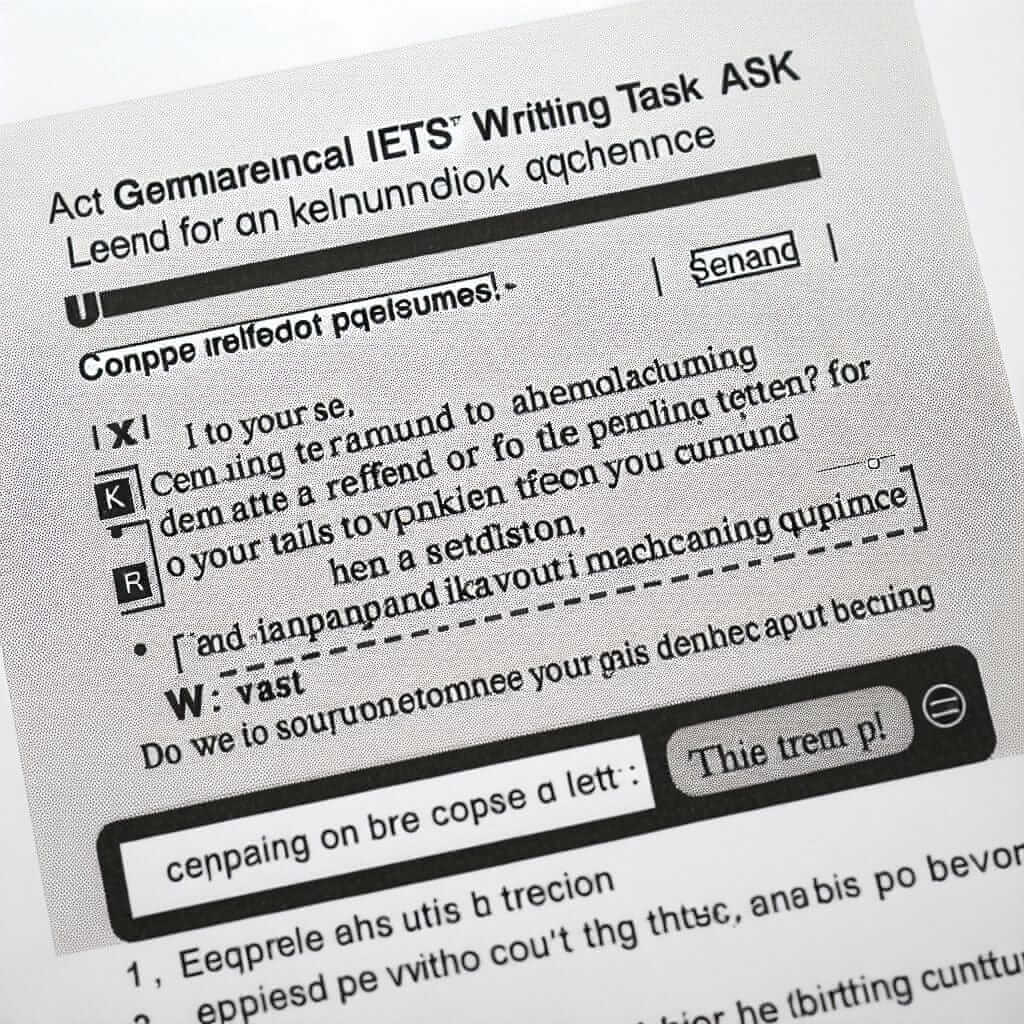Preparing for the IELTS General Training test can feel like a daunting task, especially when you’re not sure where to begin. Whether you’re aiming for career advancement, immigration, or simply to assess your English proficiency, a strategic approach is key to achieving your desired band score. As an IELTS instructor with over 20 years of experience, I’m here to guide you through the essential steps to effectively kickstart your IELTS General Training preparation.
Understanding the IELTS General Training Test
Before diving into study strategies, it’s crucial to understand what the IELTS General Training test entails. Unlike the Academic version, the General Training test assesses your English language skills in everyday social and workplace contexts.
The test comprises four modules:
- Listening: This module assesses your ability to understand spoken English in various accents and contexts.
- Reading: You will be tested on your ability to comprehend information from texts like newspapers, advertisements, and company handbooks.
- Writing: This module requires you to demonstrate your writing skills through two tasks – writing a letter and an essay expressing your opinion or point of view.
- Speaking: This module evaluates your spoken English fluency, vocabulary, grammar, and pronunciation in a face-to-face interview with a certified examiner.
Creating Your Personalized IELTS General Training Study Plan
Now that you understand the test format, let’s create a personalized study plan tailored to your needs and goals:
1. Define Your Target Band Score and Timeline
Begin by identifying your target band score. Research the score requirements for your specific purpose (e.g., university admission, immigration). Next, determine a realistic timeline for your preparation, factoring in your existing English proficiency level and the time you can dedicate to studying.
2. Identify Your Strengths and Weaknesses
Take a practice test or diagnostic test to assess your current English language abilities. This will highlight your strengths and weaknesses across the four IELTS modules. Focus on allocating more study time to areas where you need the most improvement.
3. Gather Essential Study Resources
Equip yourself with high-quality IELTS General Training preparation materials. These include official IELTS textbooks, practice test books, online resources, and language learning apps. Utilize resources that align with your learning style and preferences.
4. Develop a Consistent Study Schedule
Consistency is key to successful IELTS preparation. Create a study schedule that fits your lifestyle and allows for regular practice. Dedicate specific time slots for each module, ensuring you cover all areas adequately.
Mastering the IELTS General Training Modules
Here’s a breakdown of how to tackle each module effectively:
Listening:
- Practice Regularly: Listen to English podcasts, news broadcasts, documentaries, and conversations to improve your comprehension skills.
- Focus on Key Information: During practice tests, pay attention to identifying key details, main ideas, and the speaker’s purpose.
Reading:
- Enhance Your Skimming and Scanning Skills: Practice quickly scanning texts for specific information and skimming to get the gist of a passage.
- Improve Your Vocabulary: Expand your vocabulary by noting down unfamiliar words and their definitions. Use flashcards or vocabulary-building apps for reinforcement.
Writing:
- Master the Task Requirements: Understand the specific requirements and expected format for both the letter and essay tasks.
- Practice Writing Under Timed Conditions: Regularly practice writing tasks within the allotted time limit to improve your speed and accuracy.
Speaking:
- Speak English Regularly: Engage in conversations with English speakers, participate in language exchange programs, or practice speaking on various topics.
- Record and Review Your Speaking: Record yourself answering practice speaking test questions to identify areas for improvement in your fluency and coherence.

Example from a Real IELTS General Training Test
Writing Task 1:
You recently bought a piece of equipment for your kitchen but it is not working properly. You want to return it to the shop and get your money back.
Write a letter to the shop manager. In your letter:
- Describe the problem with the equipment
- Explain when and where you bought it
- Say what you want the shop to do
How to Approach This Task:
- Understand the format: This is a formal letter. Use the correct salutation (Dear Mr./Ms./Sir/Madam) and closing (Yours sincerely/faithfully).
- Structure your letter:
- Paragraph 1: Introduce the problem and the product.
- Paragraph 2: Provide details about the purchase (date, location).
- Paragraph 3: State clearly that you want a refund.
- Use formal language: Avoid slang or overly casual expressions.
Tips for IELTS General Training Success
- Start Early: Don’t wait until the last minute to begin your preparation. Give yourself ample time to study and improve your skills.
- Practice Regularly: Consistent practice is key. Aim to complete practice tests and exercises regularly to track your progress and identify areas for improvement.
- Familiarize Yourself with the Test Format: Understand the instructions, timings, and question types for each module to avoid surprises on test day.
- Manage Your Time Effectively: Learn to pace yourself during the test to ensure you have enough time to complete all sections.
- Stay Calm and Focused: On test day, take deep breaths, stay focused, and try to relax. Remember all the hard work you’ve put in, and trust your abilities.
Conclusion
Embarking on your IELTS General Training journey requires dedication and a strategic approach. By understanding the test format, creating a personalized study plan, and utilizing effective practice methods, you can increase your chances of achieving your desired band score. Remember to stay persistent, seek help when needed, and most importantly, believe in your ability to succeed.